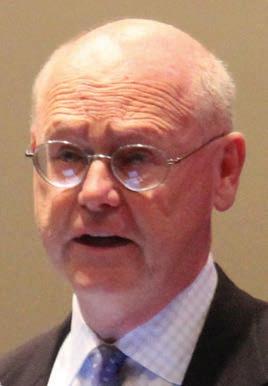How in the world did we forget
THE DELTA? By Bill Rose
W
hen cotton was king, writers from around the country could scarcely resist a road trip to the exotic Delta. They would wax eloquent about the white cotton, the black field hands, the palatial mansions owned by white planters (never farmers!), the poverty, the cruel burden of segregation, the violence, and go on about William Faulkner, even though Faulkner was, of course, a hill boy. Over time, as cotton waned and civil rights laws were passed and black people got elected to run much of the Delta, the lines weren’t quite so clear. Even the clichés were harder to come by. So the writers came less often. And they missed an essential chapter in the never-ending story of race. In a land that is 75 percent black, the poverty is worse. There are no jobs. If they possibly can, young people tend to flee, preferably to places where the living — and the money — is easier. Teenage pregnancy is epidemic. The area has some of the highest obesity, diabetes, high blood pressure and heart disease rates in America. Much of the population doesn’t even have ready access to healthy food; they eat out of gas stations and convenience stores. Generations are caught up in a cruel welfare cycle. The schools are still segregated and as sorry as ever. For the most part, churches are either black or white. And it is a rare thing for white folks to invite black folks over to the house for dinner and vice versa. Black people control the politics. White people have all the money. What a mess. Yet, something is stirring in the Delta. In Indianola, black and white community leaders worked hand in hand to pull off a Smithsonian-quality museum dedicated to the life of B.B. King. Greenwood has a luxury
30 MEEK SCHOOL
hotel, the Alluvian, which many rank among the state’s best. Thanks to the seeds planted by Morgan Freeman and Bill Luckett, Clarksdale’s downtown packs ‘em in at night to worship at the rowdy altar of the blues. More often than not, the people dancing on the bar are from Europe and Japan and the tourists outnumber the locals. And now, the major cities of the Delta are electing white mayors. Indianola, Greenville, Clarksdale, Greenwood — each of them nearly 70 percent black — have elected white mayors recently. Cleveland and Tunica have white mayors but have never had a black mayor. All of this in a region where racial bloc voting used to be the order of the day. This is a major sea change. But why? What happened? Have voters suddenly become color blind? Has the electorate become mature and sophisticated? Is it that voters are fed up with leaders who aren’t making things better and simply voting for whoever they perceive to be the most qualified to do that? And where do we go from here? That’s why we have our Depth Reporting 580 students in the Delta again this spring — to hunt for answers. To stay with the story of one of America’s most embattled regions, a place where the grinding poverty is matched only by the poorest of Indian reservations out west. A place plagued as much as any by the age-old problem of race. It is a difficult assignment. That’s why we do it. If you challenge smart students, they will rise to the bait. And there is bait a-plenty in the Delta. It is, in fact, the best writing and reporting laboratory around. Many of our students have never been to the Delta until they take this course. They are alternately shocked and bewitched by what they find. It can be a frightening thing to venture off campus, out of your comfort zone, to


















